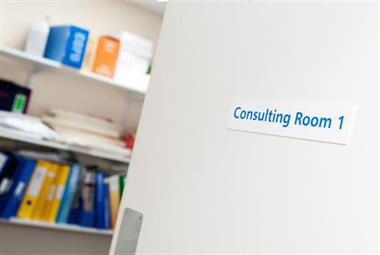Each year the CQC produces an annual report on the safer management of controlled drugs. The most recent report covering 2021 was published last month.
Notably, this report draws attention to online prescribing practices which the CQC deem to be subpar. This will have an impact on how the CQC moves forward in inspecting and upholding standards in relation to online prescribing.
In this latest annual update, the CQC noted the following:
- Governance systems were not always fit for purpose to safely manage the use and administration of controlled drugs
- Common themes relating to management of controlled drugs were noted in Prevention of Future Death reports reviewed by the CQC;
- There appears to be inadequacy across the health service in the systems for remote prescribing.
These will be key areas for GPs and other prescribers who are regulated by the CQC to look out for.
Governance systems
The CQC’s main criticism of the systems in place were that they did not reflect changes in delivery of service due to the pandemic. This included a lack of robust systems to ensure balance checks were carried out for controlled drugs to help prevent misuse; substandard reporting and reviewing of incidences in relation to controlled drugs for learning lessons; and lack of appropriate risk assessments.
This demonstrates an inherent aversion by the CQC of remote access to healthcare services, which providers will want to be cautious with.
Prevention of Future Death reports
Prevention of Future Death reports are reports that can be issued by coroners following an inquest to identify key learning points when there is the death of a patient. The CQC believes that much can be learned from specific cases so that effective change can be made across individual organisations and local health and care systems.
The key themes that the CQC noted amongst Prevention of Future Death reports it reviewed in relation to controlled drugs were:
- lack of communication between health and social care providers in local systems;
- poor monitoring of patients in primary care;
- patient manipulation of online prescribing systems;
- lack of sufficient patient education on risks of overdose;
- lack of integration and communication between independent healthcare providers and the NHS regarding patient records;
- and overall weaknesses in electronic prescribing systems.
Again, there is an emphasis on ensuring high quality systems are in place to avoid the misuse and abuse of controlled drugs, particularly in the context of remote prescribing.
Inadequacy of remote prescribing
Here, the CQC drew attention to many concerns that they noted as themes in the Prevention of Future Death reports – increased risk of fraudulent activity by patients to manipulate the system and lack of sufficient safeguards and risk assessments.
With the move to providing all aspects of services online, prescribers will want to be especially careful in this area.
Impact for GP practices
Recently Ridouts has seen the CQC take harsh enforcement action in relation to online prescribing service providers. It appears that these providers are being held to high standards which would not apply if they used a traditional prescribing model (i.e. in-person consultations).
We have seen the same themes discussed in the control drugs annual update as mentioned above prevalent in inspection reports for online service providers. This is especially true where prescribing medications remotely is concerned.
Two cases I have recently worked on have seen aspects of all of these issues identified at services which were otherwise ‘good’. Even a few minor issues resulted in downgrading of the providers’ ratings in the ‘safe’, ‘effective’ and ‘well-led’ domains
What can practices do?
Practices should update and review their governance systems regularly so that they are compliant and account for the concerns highlighted above by the CQC. Additionally, they will need to be vigilant about updates to relevant guidance.
The CQC also noted that it would like to see greater integration among services to help reduce the risks associated with online prescribing as mentioned above. Providers can reach out to their community health partners and counterparts to discuss how they could work together when it comes to patient safety for prescribing controlled drugs.
By working with other healthcare providers and agencies, providers will be able to reduce the risk to patient safety while also satisfying the CQC. Further, the burden is reduced on each provider because the systems are shared.
Overall, the key issues draw attention to the fact that the CQC’s main concerns are the systems and documentation in place which can evidence that the use of controlled drugs is safe.
As the CQC is taking a risk-based approach to inspections, it is being extra cautious when it comes to online prescribing and ensuring proper safety and risk assessments are in place for controlled drugs. This means providers must be proactive in their monitoring approach in these areas.
- Jennifer Durbin is a trainee solicitor at Ridouts
If you require assistance or advice in relation to any issues with the CQC, please contact Ridouts Professional Services Ltd at info@ridout-law.com or by calling 020 7317 0340.
| Ridouts Professional Services Ltd |
|---|
Ridouts is a law firm that only acts for care providers. We provide legal, operational and strategic advice when providers are faced with matters that could negatively impact their businesses, such as poor CQC inspections and enforcement action. www.ridout-law.com |











